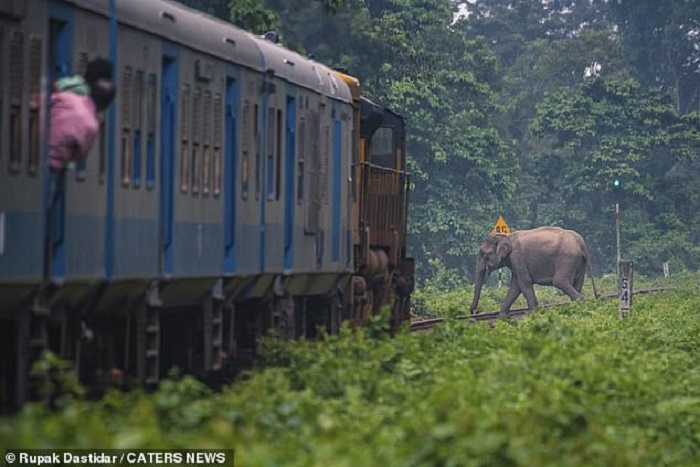
Sri Lanka has launched a series of measures aimed at reducing the increasing number of collisions between trains and wild elephants, officials said.
According to the Ministry of Transport and Highways, a parliamentary discussion held on Thursday focused on implementing practical and immediate solutions to prevent such accidents.
The meeting was led by Transport and Highways Minister Bimal Rathnayake and Environment Minister Dammika Patabendi, with participation from officials across multiple agencies, including the Department of Railways, Department of Wildlife Conservation, Department of Forest Conservation, and the Arthur C. Clarke Institute for Modern Technologies.
The government has prioritized mitigating human-elephant conflict in its current budget and is working on integrated efforts involving railway and wildlife officers. These efforts include training train operators to identify high-risk zones during night travel in the Northern and Batticaloa regions and engaging volunteer environmental groups in the initiative.
Field-level work has already begun, including filling gaps between rail tracks in the Galloya-Hingurakgoda sector near the 141-mile post. Engineers from the University of Peradeniya are testing AI-driven devices on trains as part of pilot trials to detect elephants on tracks.
Thermal cameras, introduced by the Arthur C. Clarke Institute, will be installed on several trains over the next two months as part of a targeted research project.
Additional long-term measures include enhancing rail ballasts in key areas to ease elephant crossings, improving visibility, maintaining these upgrades year-round, and instituting monthly reporting mechanisms by the Department of Railways. (Newswire)
